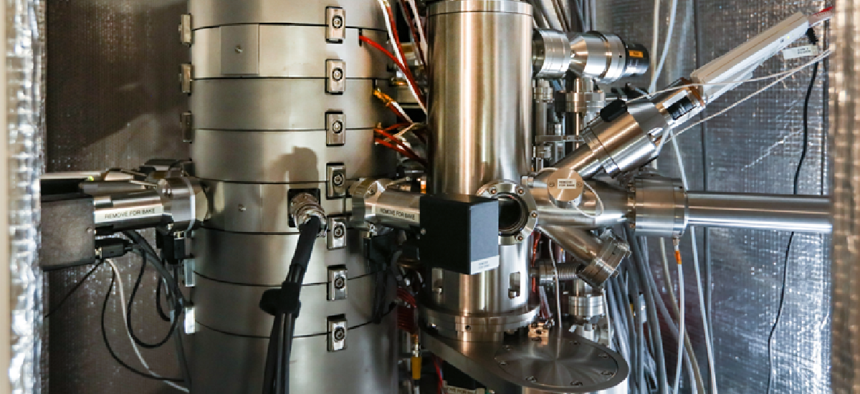Science agencies invest in quantum


Connecting state and local government leaders
In conjunction with the release of the administration's national strategy on quantum computing, the Department of Energy, along with other agencies and universities, is setting the stage for a quantum-friendly future.
Nine national laboratories have been awarded funding for research into quantum computing.
Department of Energy announced $218 million in funding for 85 research awards to scientists at 28 universities as well as the national labs for work on developing hardware and software for quantum computers and new materials with special quantum properties to investigating how quantum computing and can help researchers explore dark matter and black holes, Energy Department officials said.
The awards were made in conjunction with the recent White House Summit on Advancing American Leadership in Quantum Information Science and the release of the National Strategic Overview for Quantum Information Science.
Quantum computers are expected to be able to solve problems beyond the abilities of today's classical computers, enabling highly tuned sensors, a variety of medical, national security and scientific applications as well as the next generation of encryption. The recent awards, however, fund more basic research such as quantum metrology techniques, communications channels for fundamental physics and hardware benchmarks.
The awards are administered by three DOE program offices -- Advanced Scientific Computing Research, Basic Energy Sciences and High Energy Physics – and range in duration from two to five years. Total funding for fiscal year 2018 will be $73 million, with out-year funding contingent on congressional appropriations.
The National Science Foundation also awarded $31 million for multidisciplinary fundamental quantum research into the behavior of quantum states, bio-inspired circuits, light-based communication systems and more. The awards will also support training of the future quantum workforce.
In addition to funding basic research, the national strategy calls for federal agencies and industry to adopt the quantum technologies and encourages agencies to support quantum research with facilities testbeds and infrastructure. The administration also wants to cultivate end-users by encouraging industry, agency and consumer participation in testbeds.
Other recent support for quantum science comes from the National Institute of Standards and Technology, which is working with SRI International on the Quantum Economic Development Consortium, a group focused on advancing U.S. leadership in quantum science and engineering.
The QEDC will address workforce needs and public-private coordination, identify solutions for research or infrastructure gaps, accelerate development efforts, foster sharing of intellectual property and support efficient supply chains.
NEXT STORY: Blockchain 101: NIST releases tech overview





